13 December 2024
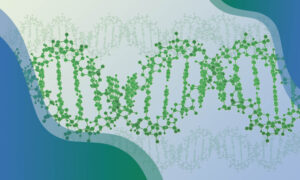
Right from the early days of DNA sequencing, EMBL’s scientists have been instrumental in helping the world understand, decode, archive, and manipulate genomes at scale and across many branches of the evolutionary tree, a task they continue to excel at today.
SCIENCE & TECHNOLOGY
13 October 2021
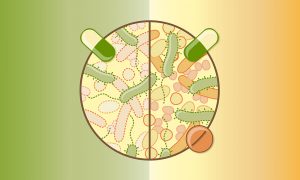
Researchers from EMBL’s Typas group and collaborators have analysed the effects of 144 antibiotics on the wellbeing of gut microbes. The study improves our understanding of antibiotics’ side effects and suggests a new approach to mitigating the adverse effects of antibiotics therapy on gut…
SCIENCE & TECHNOLOGY
2021
sciencescience-technology
8 September 2021
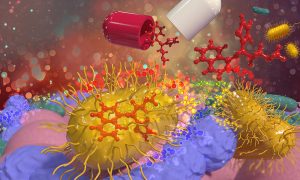
A new collaborative study led by EMBL group leaders Kiran Patil, Nassos Typas, and Peer Bork has found that common medications accumulate in human gut bacteria. This process reduces drug effectiveness and affects the metabolism of common gut microbes, thereby altering the gut microbiome.
SCIENCE & TECHNOLOGY
2021
sciencescience-technology
7 July 2021
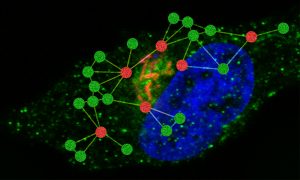
Research in the Typas group uncovers new details of the strategies Salmonella uses to survive in infected cells.
SCIENCE & TECHNOLOGY
2021
sciencescience-technology
26 February 2021

As one of EMBL’s newest group leaders, Sinem Saka will combine multiple technologies, such as microscopy and single-cell omics, to solve biological puzzles.
LAB MATTERSPEOPLE & PERSPECTIVES
2021
lab-matterspeople-perspectives
16 February 2021
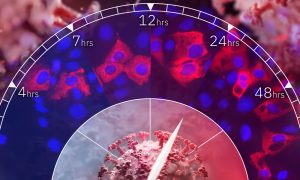
A team of EMBL scientists and colleagues have analysed how the novel coronavirus affects proteins in human cells. They identified several human proteins as potential drug targets to prevent viral replication.
SCIENCE & TECHNOLOGY
2021
sciencescience-technology
13 August 2009
Our genome is constantly under attack from things like UV light and toxins, which can damage or even break DNA strands and ultimately lead to cancer and other diseases. Scientists have known for a long time that when DNA is damaged, a key enzyme sets off a cellular ‘alarm bell’ to alert the…
SCIENCE & TECHNOLOGY
2009
sciencescience-technology
28 May 2009
Proteins are the executive agents that carry out all processes in a cell. Their activity is controlled and modified with the help of small chemical tags that can be dynamically added to and removed from the protein. 25 years after its first discovery, researchers at the European Molecular Biology…
SCIENCE & TECHNOLOGY
2009
sciencescience-technology
No results found





